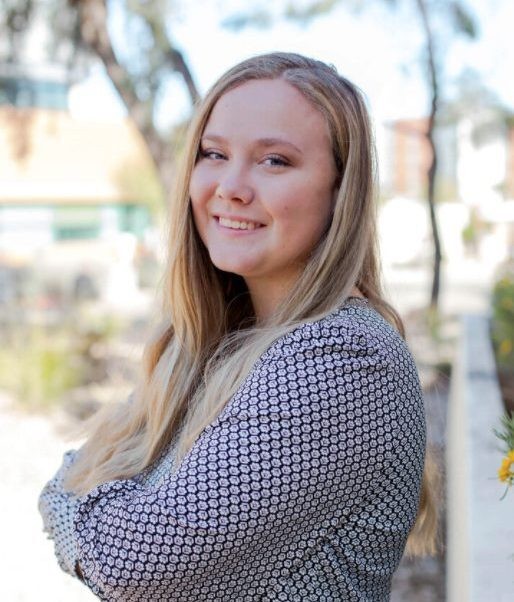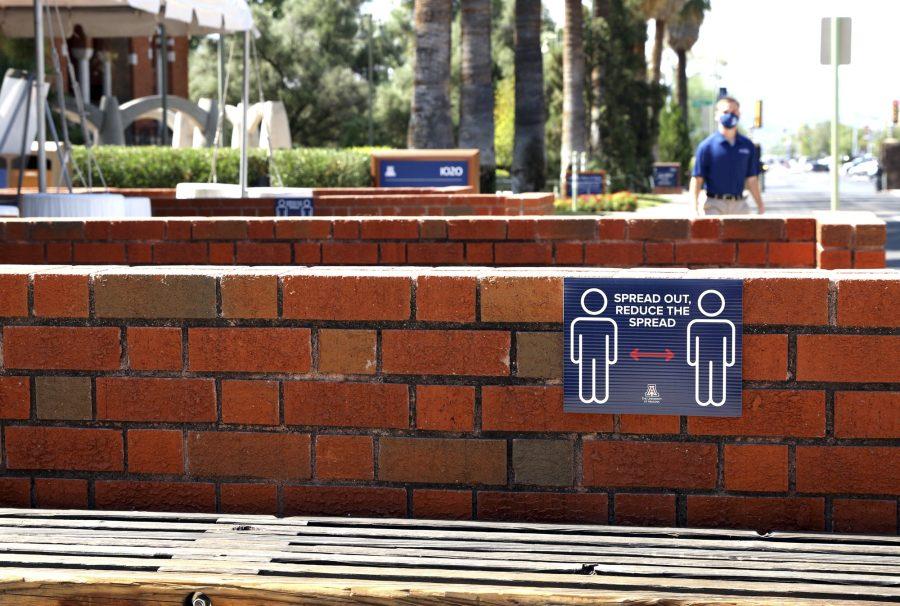The University of Arizona campus is bustling with life once again. The stadium is filled with cheering fans during home football games, in-person classes are back in session and club members are holding meetings in classrooms instead of over Zoom.
However, the campus isn’t fully back to normal. Something is lurking in the background of the crowded Student Union Memorial Center and dimly lit house parties. Something that no one saw coming the last time students and faculty were able to be on campus: COVID-19.
Even though life appears to be back to normal, it’s perfectly okay for students to feel uneasy about their return to campus while the pandemic is still going on. In fact, continuing to feel anxious about the disease that has impacted the way we interact with other people since early 2020 is a normal response.
Life looks a lot different during the fall 2021 semester than it did during the fall 2019 semester. All students are required to wear masks in indoor spaces where it is impossible to socially distance. This includes classrooms and CatTran shuttles.
Another precaution the university is taking is providing free and voluntary COVID-19 testing to all students and employees. Testing isn’t mandatory for most individuals, though the university has stated that in the case of an outbreak within shared student housing, dorm residents will be mandated to test.
Most recently, the university is mandating that all employees are fully vaccinated by Dec. 8.
The precautions that the university has put in place to combat the spread of COVID-19 are a good start. If they’re anxious about contracting the virus, students can test weekly for free and feel comfortable that masks are mandatory within the classroom. Plus, students who want extra protection can still get vaccinated if they have not already.
However, even all of the safety measures that have been put in place to make students feel comfortable on campus can’t erase the fact that the pandemic is still going on. It’s okay to feel nervous because life isn’t back to normal for everyone yet.
As a person who recently lost someone due to the virus, it’s weird to see life for some people go back to “normal.” My sister-in-law tested positive for COVID-19 in early August, and she spent the next month on a ventilator. At the end of September, she passed away.
The wound of losing someone to COVID-19 is something that many of us have experienced over the last year and a half. According to the Centers for Disease Control and Prevention, over 700,000 deaths involving COVID-19 have occurred in the United States alone since January 2020 when tracking began. The number of deaths involving COVID-19 have decreased since the height of the pandemic, with 2,433 recorded deaths during the week that ended on Oct. 9.
While, the CDC trends indicate that COVID-19 related deaths are decreasing right now, they aren’t fully gone.
Losing someone to the virus everyone else seems to be trying to forget stings. My sister-in-law is the reason that the pandemic is still fresh on my mind. She is the reason that I’ve thought about COVID-19 every single day since the beginning of the school year. I was lucky, and she was the only person that I lost during the pandemic, but it’s an even harder loss to bear when I’m integrating into a “post-COVID-19” world. Unfortunately, it’s not a post-COVID-19 world for me and my family.
Though this is my story, losing someone to COVID-19 isn’t the only reason to be wary about being back on campus. Life for many students shifted dramatically during the transition to online courses. Now, they’re being thrust back into on-campus classes filled with up to hundreds of students. It’s a lot to get used to after spending the last year and a half social distancing and avoiding large, indoor gatherings.
It’s okay to want to socialize and have the full college experience that COVID-19 stole from many students. However, it’s also okay to need time to adjust to life back on campus. It’s also okay to admit if the fear of COVID-19 still impacts you. The anxiety won’t dissipate overnight. It’ll take time to overcome, especially when the pandemic has the power to affect students and their families.
Follow Emma Watts on Twitter

Emma (she/her) is studying English and creative writing. In her free time she likes hiking, baking and writing short stories.









